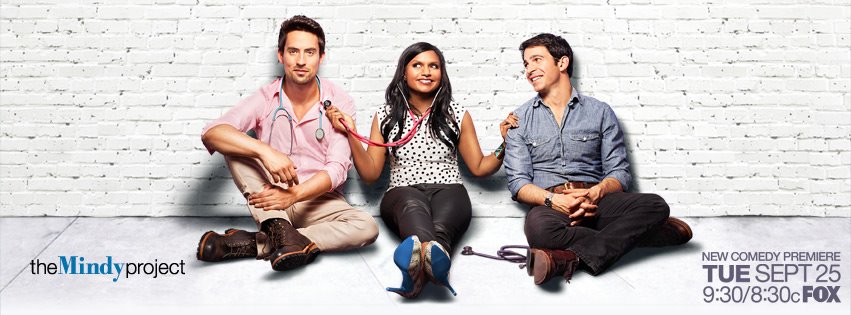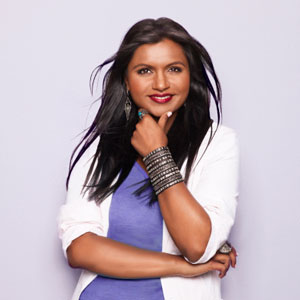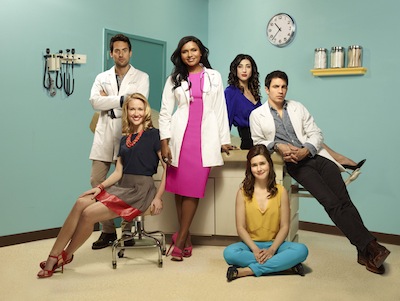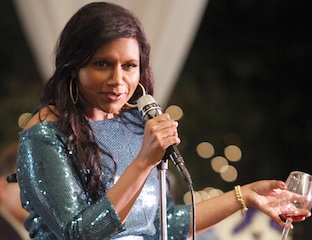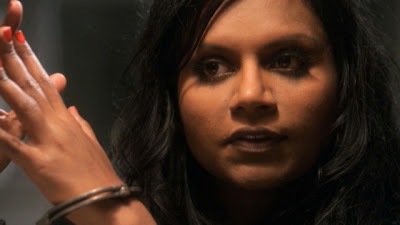 |
| The Mindy Project |
I was born and bred in Poland, a country that has for years struggled to embrace foreign cultures, and despite its growing tolerance and diversity across all aspects of society, including mainstream media, you wouldn’t quite describe it as multicultural. Having gotten the film bug at a young age, and having a film buff for a father, I have been exposed to the World and European cinemas early. Yet the topic of cultural diversity never as much as brushed upon the surface of mine and my peers’ discussions on film. Yes, there was Almodovar, and… there was Almodovar. It wasn’t until I have moved to the UK, back in 2005 that the term “ethnic minority” was first made known to me. Few years on, and I started flirting with the idea of joining the media industry. And this is when I realised that – despite an ever-present and rather obvious diversity of women in the world as such, as well as the labor market – the lack of women of varied ethnic backgrounds in the media, be it on screen or behind it, was striking. The Asian women being one of the under-represented groups.
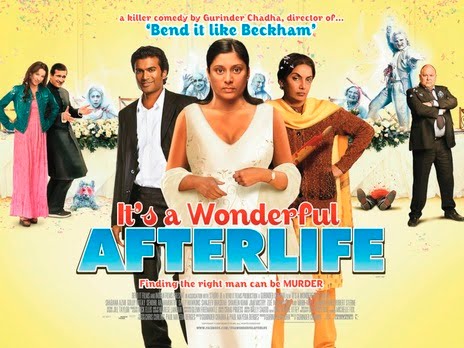 |
| Gurinder Chadha’s It’s a Wonderful Afterlife |
The first year of my film studies was also the time of assimilation into a multiracial society, and the time when I was introduced to the insightful work of Gurinder Chadha, a British director of Indian-Kenyan origin. Chadha is known for her work depicting the lives of Indians, and more specifically, Indian women residing in the UK. Her films – such as my absolute favourite
Bhaji on the Beach, and widely recognized
Bend it Like Beckham – have not only focused on young South Asian women and the dilemmas they faced, confronted with what is expected of them by their community, but most importantly, they explored the topic of female bonding and intergenerational ties.
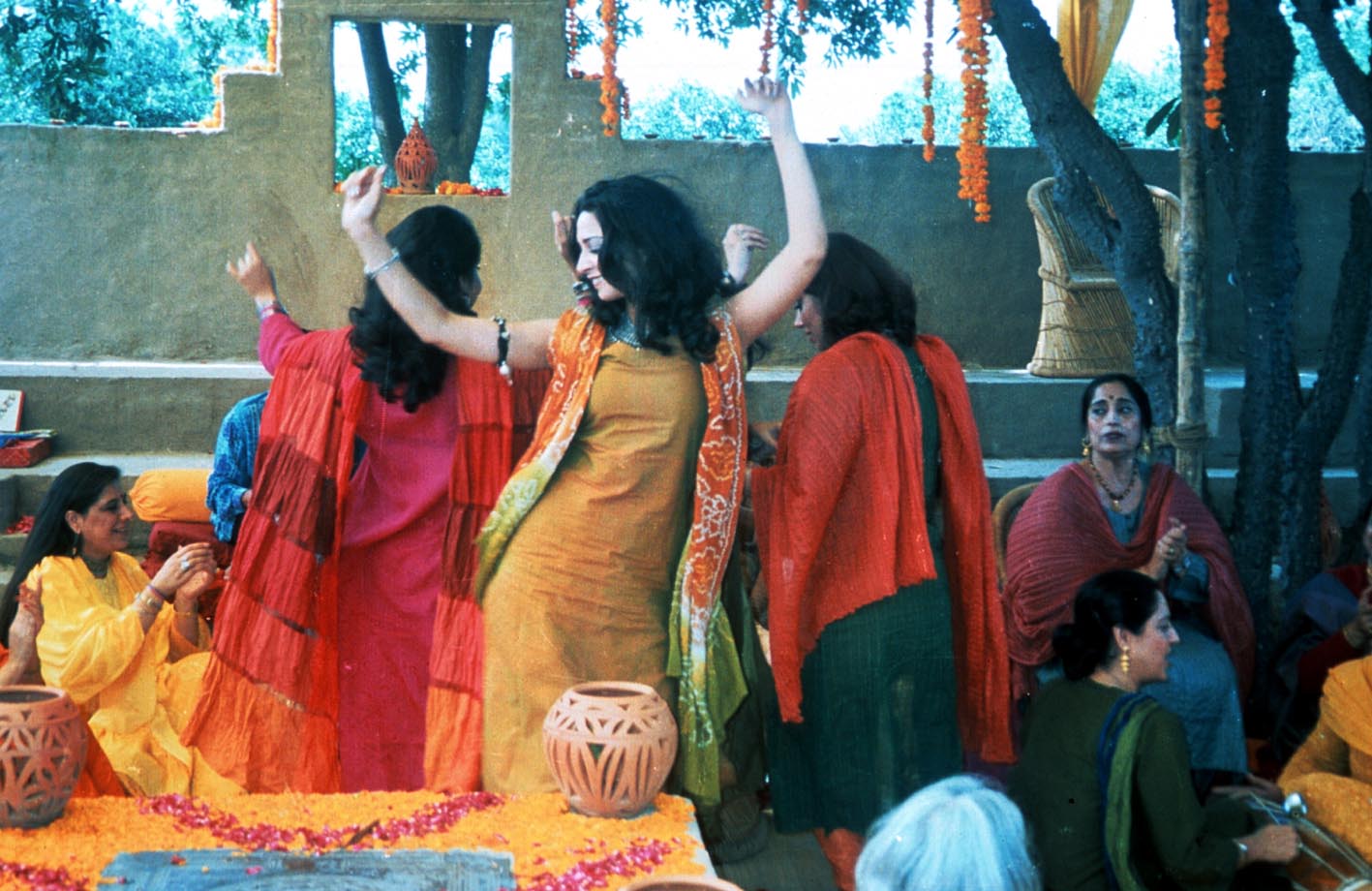 |
| The women of Monsoon Wedding, directed by Mira Nair |
The above topics were also being discussed in parallel by Indian director Mira Nair. There was the exploration of the implications that being in an interracial relationship in the ’90s America comes with, in
Mississippi Masala, as well as that of secrets and conflict in a multigenerational Indian family in
Monsoon Wedding. Nair and Chadha offered me a unique opportunity to explore their amazing and colorful culture, that I have otherwise wouldn’t be able to get to know so closely. But what I most liked about the work of these two women of South Asian origin, was the very first thing I appreciate in female-directed films in general: the fact that they focus on female characters and do not shy away from exposing and exploring their flaws.
Fast forward to 2012 and along came Mindy Lahiri. Or rather Vera Chokalingam, known to all by her stage name, Mindy Kaling. I know that Mindy was widely recognized way before The Mindy Project from The Office and I know that its devotees will want to assail me for this, but… I haven’t seen a single episode! But judging by her excellent writing and acting in her auteur project – I am sure that she was flawless.
Truth be told, I only discovered Kaling last year, upon my first trip to the U.S. in Autumn 2012. Hoping for an easy plane read, I bought her book
Is Everyone Hanging Out Without Me? (and other concerns) and I was not disappointed. Mindy’s writing is light, funny, and with just the right amount of self-deprecation. And so is her show.
 |
| #themindyproject |
Having gotten to know Mindy ‘the creator’, Mindy ‘the product of thus creation’ didn’t come as a surprise to me. She’s quirky, a bit ditzy, could easily pass as innocent, and definitely as naïve, and she is not particularly self-critical (take the latest episode’s taxi cab commercial featuring Dr Lahiri dressed in a dog’s costume and conversing with a puppet named Erica, the same commercial that gets her the highest ‘P’ rating, meaning ‘pity rating’).
 |
| “I just need to ride out this minor humiliation until I find my Kanye.” |
Most of all of – Mindy is an extremely likable character. Despite her naivety, she is a smart and ambitious woman, finding fulfillment in her career, and yes, despite occasional bumps here and there in relation to men, she does value herself, which is a very powerful message on its own.
 |
| “It’s so weird being my own role model.” |
Mindy’s career is not a topic yet discussed in depth – much of the in-work plot evolves around her competing with the two male doctors at her practice, or more recently, two male midwives from a rival practice – but her love life can be summarised in one phrase, that goes something like “the endless pursuit of romance.” As the show progresses, we discover that this is not all that Mindy is about. She values friendships, and yes, to our awe, she does value her patients in a completely selfless way (take episode 15 “Mindy’s Minute” as an example of her good-doctor attitude).
A majority of feminist statements made in the show have nothing to do with race. Similarly to Hannah from Girls, she is a full-figured lady, unobnoxiously proud of it (she wears dresses that accentuate her figure but rarely reveals her cleavage), and very much aware of it. She refers to herself in a belittling manner on a number of occasions, such as in episode one when she answers her phone on a date saying, “Do you know how difficult it is for a chubby 31-year-old woman to go on a legit date with a guy who majored in economics at Duke?.” So, there is a healthy dose of self-awareness. Or is there? I forever struggle with the concept of weight and bodily image of women on screen – the general consensus, according to the media, is that thin equals beautiful. Therefore it is always so ‘refreshing’ and ‘bold’ to see a ‘bigger’ female character on screen. I simply find those statements annoying. I dream of a day when any woman on screen will be considered beautiful for her individual qualities and features, rather than being seen and described as ‘something’ in comparison to ‘something else’.
Going back to the Indian culture – as already established, Mindy approaches everything with self-deprecating humour, like in the latest episode, when offered an opportunity to present medical news in her new pitiful persona (see: paragraph six), she fatastises of this being the beginning of her celebrity doctor dream coming true, and says to her co-workers “can you guys believe it… me, the child of immigrants…”. I mean, you gotta laugh. There is, however, a thin line between mocking one’s own culture and playing on the well-known stereotypes like Kaling, and overdoing it, like in
New Girl, where
Schmidt’s obsession for Cece’s ethnicity goes beyond tasteful at times. Mindy’s ethnicity does not really matter to her or the viewer, unless it is convenient for her to play with it in a stereotypical way (like when she makes authoritative statements about how Black guys love Indian women), which in my opinion, she does with a comedic grace.
Nonetheless, the former show touches upon such issues as arranged marriage and the compromises that Asian women must make in order to remain in good graces of their family. With Mindy, on the other hand, we never really learn much about her family, or what was expected of her, but the sole fact that she is a doctor, and expects her brother to become an educated professional himself, brings us back to the “child of immigrants” syndrome. Maybe because she is already so Westernised there is nothing to really rebel against, and the cultural aspect falls to the background. Nothing that Mindy does bends the rules quite as much as what Jesminder did in Bend it Like Beckham, but then, the times have changed.
 |
| Mindy Kaling as Mindy Lahiri |
Mindy Kaling is the creator of The Mindy Project, as well as the main writer on the show. There is no question that she’s witty, talented, utterly adorable, and challenges, however subtly, some most common cultural stereotypes ingrained in the audiences’ minds by the media. It is not a show for everyone, for sure. But it is an entertaining show, that can find its audience amongst both, men and women.
Let’s face it, we love quirky and goofy characters. Deep down we all hope we are more adorable than pitiful when we find ourselves in embarrassing situations. Does it matter then what colour/ethinicty/gender the characters are? And if we say that it doesn’t, why aren’t there more female Indian protagonists like Mindy Lahiri on the big and small screen? And how is this astounding imbalance a reflection of the melting pot that our society is today? That is beyond me. And so the debate continues.
———-
